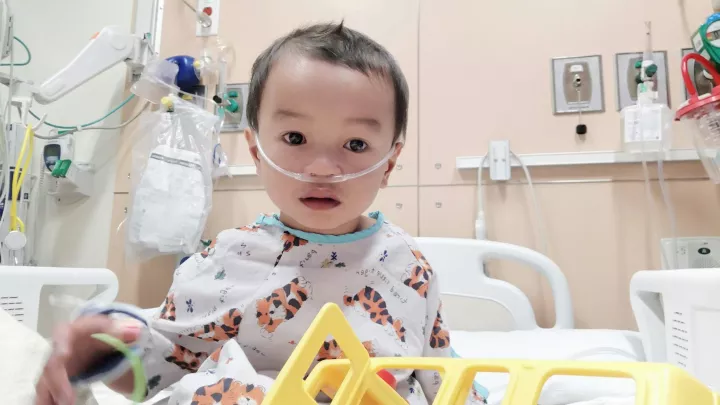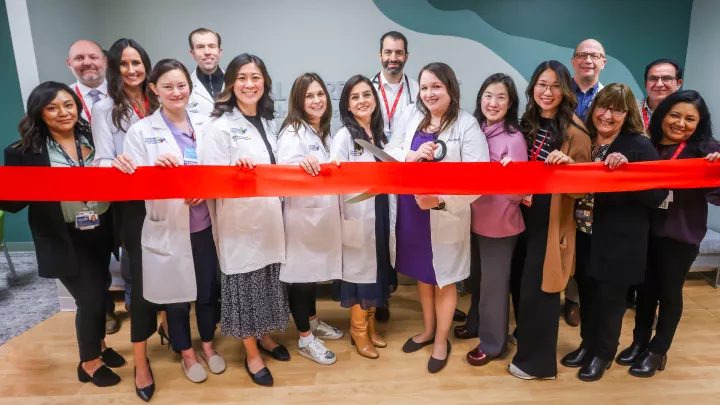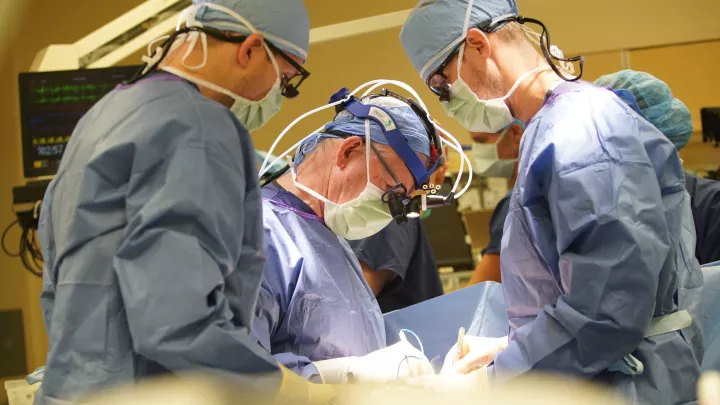Ventricular Assist Device (VAD) Program
A ventricular assist device (VAD) is a mechanical pump that helps the heart circulate blood to the body. When the heart isn’t working well, doctors can surgically implant a VAD to help. Our Ventricular Assist Device Program offers the most advanced pediatric VAD technologies.
VADs improve organ function, help the body heal and reduce heart failure symptoms. Depending on their needs, children may use VADs for a few days or a few months. Our dedicated team of experts supports your child and family every step of the way.
Ventricular Assist Device Program: Why Choose Us
U.S. News & World Report consistently ranks Children’s Hospital Los Angeles among the top 5 pediatric hospitals in the country. And the Heart Institute regularly ranks as one of the top pediatric cardiology and heart surgery programs. Our pediatric Ventricular Assist Device Program contributes to the Heart Institute’s overall success and exceptional patient outcomes. This program features:
- Outstanding outcomes: We often use VADs to support children’s organs to help them become healthier candidates for heart transplants. Our track record for putting children with heart failure onto VADs and getting them to a successful transplant is excellent. And thanks to VADs, children with advanced diseases can get heart transplants.
- Leading-edge devices designed for children: Doctors have used VADs for adults for decades, but pediatric VADs are newer. We offer the most advanced VADs in a range of sizes appropriate for newborns through young adults. And we have internal and external devices, depending on your child’s needs. Our team has years of experience using the Berlin Heart, the first VAD the U.S. Food and Drug Administration (FDA) approved specifically for children.
- Research and innovation: Our doctors treat patients and conduct groundbreaking research. This dual focus gives your child access to the newest and most advanced treatments not available elsewhere. For example, a CHLA team led by Cynthia Herrington, MD, developed and patented an artificial right atrium. The team is testing the new device to support Fontan patients on VADs. This innovation seeks to improve outcomes for Fontan patients by keeping them stable until they can receive heart transplants. Learn more about our Fontan Program.
- Holistic approach to care: The goal of giving children VADs is to help them feel better. If possible, we give children internal VADs, so they can leave the hospital after their health improves. For those who need to stay in the hospital, we try to create as normal and comfortable an environment as possible. We work with infants and toddlers to reach milestones like eating and talking and encourage older children to continue schooling, if possible. And we make it easy for your family to spend time with your child throughout treatment.
Our Multidisciplinary VAD Team
Surgeons insert VADs, so they often run VAD programs. But surgeons don’t handle the day-to-day device management, such as regulating the flow rate, preventing clots and cleaning the insertion sites. That’s why our program has a multidisciplinary team of VAD experts, including:
- Cardiothoracic surgeons
- Cardiologists
- Cardiac intensivists
- Nurse practitioners
- Nurses
- Dietitians
- Physical therapists
We also have detailed, evidence-based protocols that your provider uses to guide daily VAD management. And specialists from other disciplines support our VAD experts to care for your child’s emotional and social needs. These specialists include:
- Care coordinators
- Child Life specialists
- Psychologists
- Social workers
Why Does My Child Need a VAD?
VADs support your child’s heart when it’s not working well enough. Doctors may use a VAD to:
- Allow time to make decisions: If your child experiences heart trauma or rapid deterioration, a VAD can give you and your child’s doctor time to discuss options and make informed decisions.
- Support your child’s heart before transplant: If your child’s heart is failing, a VAD can help support your child until a heart transplant is available. Find out more about our Heart Transplant Program.
VAD Treatment at CHLA
At the Heart Institute, we specialize in pediatric VADs. Our expert team identifies the best device for your child’s unique needs. We consider factors such as age, size, condition, psychosocial needs and more.
Heart Conditions We Treat With VADs
VADs may help support children with these conditions:
- Cardiomyopathy
- Congenital heart diseases awaiting transplant
- Congestive heart failure
- Dilated cardiomyopathy
- Myocarditis
- Restrictive cardiomyopathy


